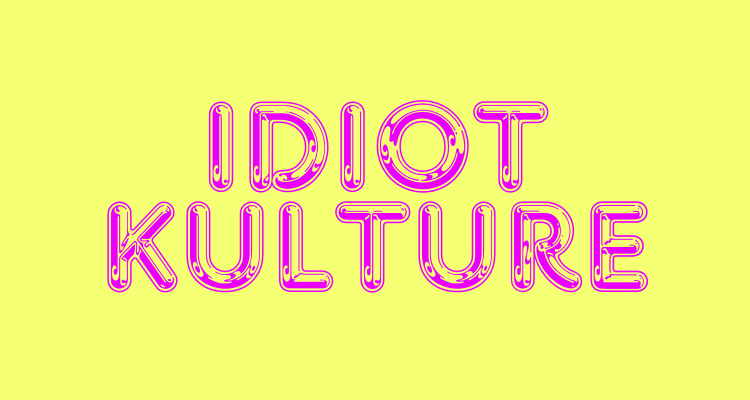Morrissey has always been suspicious of authority, but My Love, I’d Do Anything for You elevates that suspicion into a direct attack on ideological control. This is not just a love song—it’s a manifesto, a warning, and a plea to wake up to the structures that shape our lives.
More than any other song in his later discography, My Love, I’d Do Anything for You is about the necessity of ideological recognition—of understanding that our thoughts, beliefs, and desires are not as freely chosen as we assume.
Teach your kids
To recognize and despise all the propaganda
Filtered down
By the dead echelons of mainstream media
This is Morrissey at his most direct, spelling out what many of his songs have implied:
- We do not live in a world of neutral information. Everything we consume—news, entertainment, advertising, even education—is filtered through ideological structures.
- Mainstream media doesn’t just report facts—it shapes reality, defining what is and isn’t worth talking about.
- The “dead echelons” refer to the ruling class, the entrenched establishment that no longer needs to actively deceive people because the system itself sustains the illusion of choice.
This mirrors Žižek’s view on ideology—it isn’t just propaganda in the classic sense; it’s the very framework through which we understand the world. We don’t recognize ideology because we are inside it.
Morrissey is saying: Teach your kids to see it. Because if they don’t, they will live their lives mistaking their cage for freedom.
Society’s Hell – The Illusion of Individualism
You know me well
My love, I’d do anything for you
Society’s hell
You need me just like I need you
At first, this section feels personal, like a romantic confession. But it’s also a critique of the false promises of individualism.
- “Society’s hell” – Not because of any one policy or government, but because we are trapped in a structure that presents itself as freedom while controlling every aspect of our lives.
- “You need me just like I need you” – Human connection is the only real escape, the one thing that cannot be fully commodified.
This echoes the Frankfurt School’s critique of capitalism—that modern life isolates people, making them believe they are autonomous individuals while keeping them dependent on systems that exploit them.
Morrissey, in his usual fatalism, isn’t offering a way out—he’s just acknowledging that the system is rigged.
The Boredom of Modern Life
Weren’t we all
Born to mourn and to yawn at the occupations
That control
Every day of our lives we can’t live as we wish
Live as we wish, live as we wish
This is the most devastating part of the song—because it exposes the deepest ideological trick of all.
- We are told to pursue careers, to work, to contribute.
- We believe that this is just how life works, that there is no alternative.
- But what if we were never supposed to live this way?
“Born to mourn and to yawn” suggests that life under capitalism is fundamentally joyless, repetitive, and predetermined.
- Work is not about fulfillment—it’s about control.
- Even rebellion is pre-absorbed into the system—punk, counterculture, even “alternative” politics are marketed back to us as lifestyle choices rather than genuine movements.
And the worst part? Even if we recognize this, we are still trapped inside it. Morrissey repeats “Live as we wish” as if trying to will it into existence—but it’s clear that we don’t, and maybe never will.
Conclusion – Seeing the Cage Doesn’t Mean You Can Leave It
My Love, I’d Do Anything for You is not a hopeful song. It doesn’t offer solutions, revolutions, or alternatives—it just tells the truth: The system is built to control you. Your thoughts are not entirely your own. Even the belief that you are free is part of the illusion.
Recognizing this isn’t an escape, but it’s the first step. And Morrissey’s final message? At the very least, don’t let your kids grow up blind to it.



